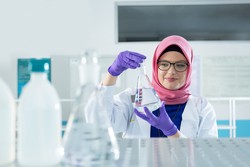Ongoing EU-Arab collaboration
Europe maintains research relationships with several regions outside of Europe, including the Gulf Cooperation Council (GCC) countries. The EU officially supports the development of various forms of cooperation. The EU-funded INCONET-GCC2(opens in new window) (Science, technology and innovation international cooperation network between EU and the Arab Gulf countries aiming at the bi-regional coordination towards Horizon2020) project fostered cooperation between the regions. The project built on the results of the similar INCONET-GCC that concluded in 2014. Both projects supported institutional bi-regional policy dialogue in scientific research, strengthened cooperation and monitored progress towards science, technology and innovation cooperation. They also both focused on encouraging increased participation in Horizon 2020. The second incarnation also addressed societal challenges of mutual interest identified during the first phase, in particular smart cities and health (specifically diabetes). A highlight of the programme included mapping bilateral and multilateral research agreements. The team also drafted key policy documents in support of bi-regional research and innovation policy dialogue. On the same theme, project members organised two policy panels to explore the possibility of a more structured policy dialogue between the EU and GCC. Speakers identified a need to consider commonalities and differences between the regions in planning, and the importance of building on existing structures. The consortium organised a programme of thematic workshops, innovation summer schools and mobility grant schemes. Such activities were intended to identify common research priorities and increase cooperation between research institutions. Project staff further organised a series of training seminars for Horizon 2020 National Contact Points from the GCC and Yemen. The purpose was to share good practices and contribute to building capacity in the respective national structures. The team also organised a series of Horizon 2020 information days. This was in response to recognition of the relatively poor knowledge in the GCC of Horizon 2020 rules and conditions and also the limited number of topics of mutual interest. Lastly, the group organised a series of conferences and otherwise fostered opportunities for collaboration. Project outcomes will mean continued improvement in cooperation between the EU and GCC. Such collaboration will contribute to the formation of a European Commission strategy for the Arab Gulf region.



